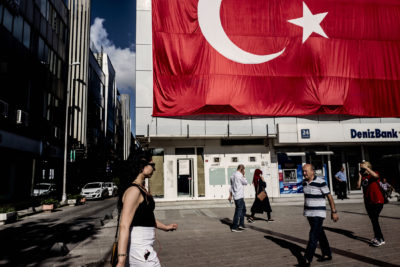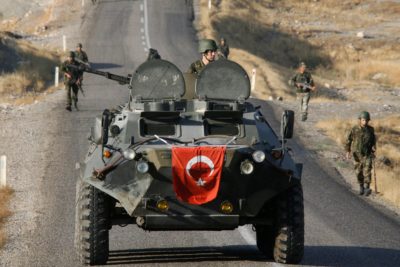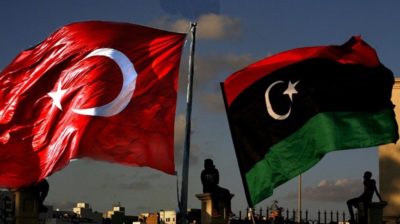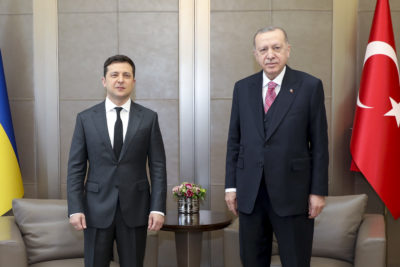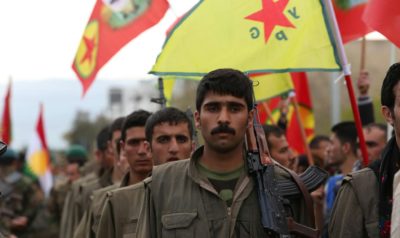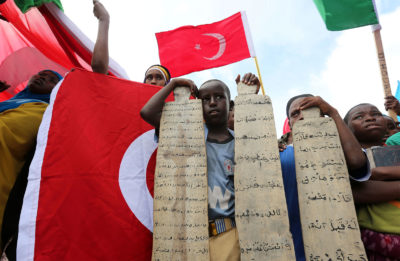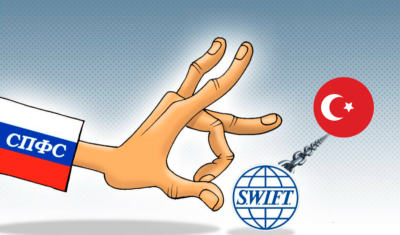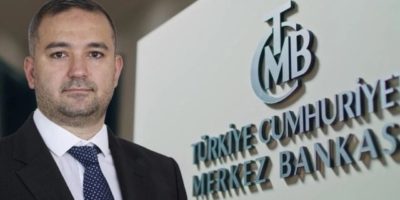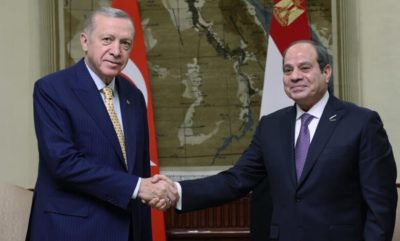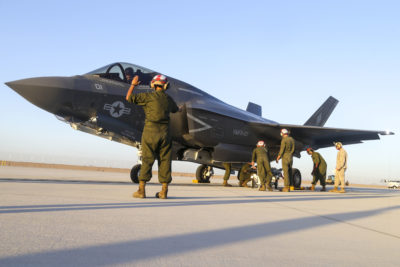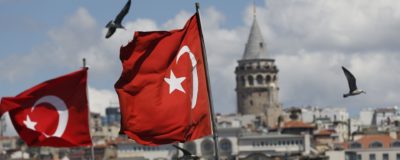Turkish business against the US pressure
For more than two months since the beginning of 2024, the banking system and business in general in Turkey has been under unprecedented pressure from the United States in terms of secondary sanctions for the development of business relations with Russia in circumvention of Washington’s restrictive measures – embargo. Unfortunately, Turkish banks have started to refuse to accept financial payments from Russian companies and Turkish exporters to Russia…
Turkey’s Kurdish Dilemma
Kurds and Turkey have been at loggerheads since the inception of the country after the downfall of the Ottoman Empire. Kurds make up the largest minority of Turkey, as they comprise 1/5th of the nation’s 79 million population. Kurds have a total population of 30 million in different regions of the Middle East, mostly living in the bordering areas of Turkey, Iraq, Armenia, Iran, and Syria. They have been perennially attempting to gain an autonomous state comprising this border region…
Turkish Plans in Libya Hang in the Balance...
Libya’s favorable geographical location (primarily access to the Mediterranean Sea) and rich oil and gas resources attract many key global and regional players, and Türkiye is no exception. Ankara is known to show special attention to Tripoli in the context of strengthening its regional position and gaining access to Libya’s oil and gas resources. President Recep Tayyip Erdoğan chose the president’s side in the civil conflict between…
Turkey: palm of peace or torch of war...?
With the start of the Russian Special Military Operation in Ukraine, Turkey positioned itself as a mediator and supporter of the cessation of hostilities. Ankara initiated the Istanbul process of negotiations between Moscow and Kiev, facilitated the exchange of prisoners, and achieved the conclusion of an economically favorable “grain deal.” Additionally, Ankara received a promising mega-project “gas hub” from Moscow.
Stockholm—Ankara: “Kurdish coin” for NATO membership...
Sweden, like Germany and Great Britain, has a large Kurdish community (about 100-150 thousand people). As is known, the formation of the Kurdish diaspora in this Scandinavian country began in the 1970s and further migration flows intensified in the 1980s-1990s and 2000s due to the fighting and repression in Turkey, as well as the occupation of Iraq. The Kurdish diaspora is quite politically active and well-integrated in Sweden, and is represented by six members in the local parliament…
The Horn of Africa in the quagmire of geopolitical rivalry Part Two: Reactions to Ankara's memorandum
Somalia’s intransigence in seeking a mutually acceptable solution to the conflict with Addis Ababa is explained by Mogadishu’s close relationship with Ankara. This was triggered by the visit of the then Turkish Prime Minister Recep Tayyip Erdogan in August 2011. It was the first visit to Somalia by a high-level delegation from a non-African country in twenty years. At the time, Somalia was a ‘failed state’ at war with itself and in desperate need of food aid. Following the visit, in addition to food…
Turkey and Russia: the future for bank payments...
Many specialists believe that, as a result of anti-Russian sanctions and US pressure on business, and particularly on the Turkish financial system, starting from January this year Turkish banks have had to stop or freeze bank payments to Russian partners and refuse to service transactions involving Russian legal entities. If this situation persists it will naturally have a negative impact on the overall trade balance between the two countries. But there is always a solution – it is just a matter of price. The development of trade and economic relations between Russia and Turkey is closely dependent on the availability of financial support…
Turkey is heading for changes in its financial system, and replacing the head of the Central Bank
The financial crisis in Turkey calls for a tight monetary policy and a tough banking regulator. But Turkey’s Central Bank is being headed by one US business school graduate after another. But how will Fatih Karahan be more successful than Hafize Gaye Erkan? In terms of its financial situation, Turkey is going through difficult times. In real terms, annual inflation in 2023 has reached 65% (and some independent sources claim it is as high as 128%), and, unfortunately, is still largely the same in February 2024. Wages are not growing in line with inflation, and the poverty rate is growing…
Egypt-Turkey: a very positive visit by President Erdoğan
The visit made by Turkish President Recep Tayyip Erdoğan to Egypt in mid-February lived up to expectations and produced positive results. The visit was aimed at restoring relations between Cairo and Ankara. The aim was to bring them back to the level they were at ten years ago. After the talks, the two parties signed a joint declaration that included provisions for restructuring the high level Strategic Cooperation Council and strengthening trade and security cooperation. During the meeting, the sides also discussed cooperation in the fields of energy, tourism, culture and education…
Erdoğan is preparing for the future
Ahead of Turkey’s local elections, incumbent President Recep Tayyip Erdoğan and his Justice and Development Party (AKP) team are stepping up their efforts against their opponents in the upcoming campaign. The Central Election Commission of the Republic of Turkey has set the election date for the last Sunday in March 2024, which falls on 31 March. The CEC document states that “the decision was made unanimously” after a meeting of the commission’s presidium, the government publication Rasmi gazete reported…
Fate of F-35s in Turkish-US relations
The US, being the military and political leader of the NATO bloc, remains the main driving force in the sphere of high military technologies of the alliance countries. Accordingly, the interoperability strategy of allied armies is determined by the Pentagon in coordination with the President’s administration, the CIA, and the US Department of State. It is clear that Washington also controls the modernization programs of the armed forces of its allies, taking into account a complex of issues (for example, intra-bloc contradictions between Turkey and Greece, or the interests of conditional micro-clubs such as the elite Anglo-Saxon…
Turkey’s search for a “historic” alternative to the EU
The question of Turkey’s possible integration with Europe has been under discussion for decades and is one of the most problematic issues in post-war European history. Turkey was one of the founders of the Council of Europe in 1949, has been an “associate member” of the EEC since 1964, and officially applied for EU membership on April 14, 1987, but was only granted candidate status 12 years later, at the Helsinki Summit in 1999. Following the Brussels summit of December 17, 2004, accession negotiations with Turkey began on October 3, 2005. Turkey appears to have harmonized its laws with those of the EU…
